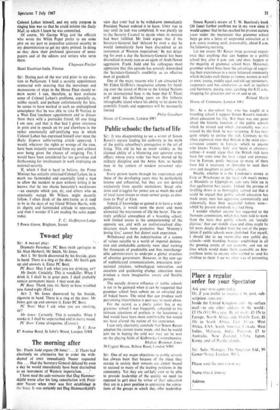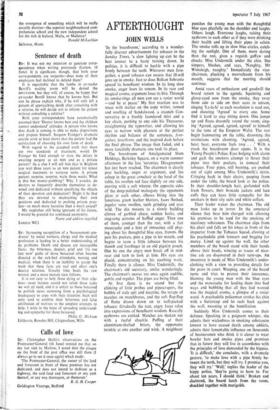Sir: As a day-school boy who has taught at a
boarding school I support Simon Raven's remarks about education for life. But there was one point about the historic function of the public schools which he missed and which presumably was also missed by the book he was reviewing. It has been quite simply to civilise the rich. Contrary to the often expressed view that Britain is the most class- conscious country in Europe—which to anyone who knows France, Italy and Spain is obviousli, unirue—I would argue that the British rich have been for some time the least vulgar and provoca- tive in Europe, partly because so many of them have felt it necessary or desirable to send their sons and daughters to public schools.
Wealth, whether it is the Londoner's money at Eton or Winchester or the local rich man's money at Blundells or Uppingham. cuts very little ice in that egalitarian boy society. Indeed, the process of levelling down is so thoroughly carried out that it could be argued that public school education has made many men less aggressive commercially and industrially than their successful fathers were- which-by present standards is a bad thing.
I wonder whether anyone has suggested to the Newsom commission, which has been told to work from the basis that public schools are 'socially divisive; that our middle class and elites might be fa} more deeply divided from the rest of the popu- lation if public schools were abolished. For myself, I should like to see twenty-five new public day schools—with boarding houses—established in all the growing points of our economy and run on lines which would make them accessible on hire- purchase terms to anyone who isanted to send his children to them. I see no other way of preventing
the emergence of something which will be really socially divisive--the superior neighbourhood com- prehensive school and the new independent school for the rich in Ireland, Malta, or Mallorca!







































 Previous page
Previous page